-
 Bitcoin
Bitcoin $81,560.5117
-5.51% -
 Ethereum
Ethereum $1,771.5096
-6.33% -
 Tether USDt
Tether USDt $0.9997
-0.02% -
 XRP
XRP $2.0181
-5.66% -
 BNB
BNB $586.3042
-2.90% -
 USDC
USDC $0.9999
-0.01% -
 Solana
Solana $114.4035
-11.78% -
 Dogecoin
Dogecoin $0.1574
-8.81% -
 TRON
TRON $0.2356
-1.07% -
 Cardano
Cardano $0.6304
-7.98% -
 Toncoin
Toncoin $3.5817
-10.14% -
 UNUS SED LEO
UNUS SED LEO $9.4001
0.05% -
 Chainlink
Chainlink $12.4964
-9.88% -
 Stellar
Stellar $0.2554
-5.72% -
 Avalanche
Avalanche $17.9353
-7.12% -
 Sui
Sui $2.2095
-9.36% -
 Shiba Inu
Shiba Inu $0.0...01210
-4.11% -
 Hedera
Hedera $0.1588
-8.41% -
 Polkadot
Polkadot $3.9938
-3.88% -
 Litecoin
Litecoin $81.5008
-4.91% -
 MANTRA
MANTRA $6.3620
0.67% -
 Bitcoin Cash
Bitcoin Cash $295.0277
-4.58% -
 Dai
Dai $0.9999
0.01% -
 Bitget Token
Bitget Token $4.4599
-2.73% -
 Ethena USDe
Ethena USDe $0.9994
-0.05% -
 Pi
Pi $0.5677
-16.47% -
 Monero
Monero $209.1420
-4.72% -
 Hyperliquid
Hyperliquid $11.3307
-18.13% -
 Uniswap
Uniswap $5.6900
-8.31% -
 Aptos
Aptos $4.9771
-7.48%
What are the channels for buying USDT? What are the advantages and disadvantages of each?
USDT can be purchased through exchanges, P2P marketplaces, OTC desks, brokers, or DEXs, each with unique advantages and risks to consider.
Apr 02, 2025 at 08:49 pm
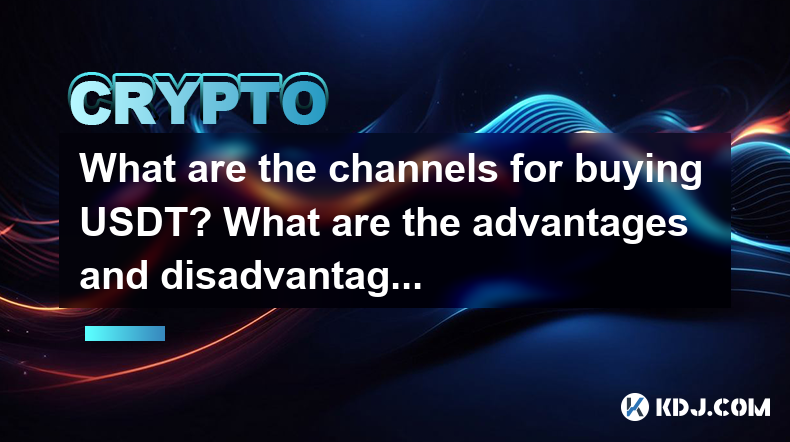
Purchasing USDT: A Comprehensive Guide to Channels and Considerations
USDT, a prominent stablecoin pegged to the US dollar, offers a relatively stable investment compared to volatile cryptocurrencies. However, acquiring USDT requires navigating various platforms, each with its own strengths and weaknesses. Understanding these channels is crucial for making informed decisions.
One of the most common methods is through cryptocurrency exchanges. Exchanges like Binance, Coinbase, Kraken, and Huobi offer USDT trading pairs with various fiat currencies (USD, EUR, etc.) and other cryptocurrencies. This allows for direct purchase using a bank account or credit/debit card. The advantage is the wide availability and generally competitive pricing. However, exchanges can be subject to regulatory scrutiny and security breaches, posing risks to your funds.
Another popular channel is through peer-to-peer (P2P) marketplaces. Platforms like LocalBitcoins and Paxful connect buyers and sellers directly, often facilitating transactions with various payment methods, including bank transfers and cash. The advantage lies in the flexibility and potential for better pricing in certain regions. However, P2P trading carries higher risks due to the lack of centralized regulation and the potential for scams. Thorough due diligence is essential.
Over-the-counter (OTC) trading desks provide a more private and potentially higher-volume trading experience, often catering to institutional investors and large-scale transactions. These desks usually offer personalized service and competitive pricing, but require significant capital investment and often involve a more complex process. The lack of transparency compared to exchanges can be a disadvantage.
Some cryptocurrency brokers offer USDT purchase options alongside other services. These brokers typically simplify the buying process, making it accessible to beginners. The convenience is a major advantage, but brokers may charge higher fees compared to exchanges or P2P platforms. Furthermore, their selection of cryptocurrencies might be limited.
Finally, some decentralized exchanges (DEXs) allow for USDT trading using various cryptocurrencies. DEXs prioritize user privacy and security through decentralized operation, minimizing reliance on centralized entities. However, using DEXs requires a higher level of technical understanding and often involves higher transaction fees and lower liquidity compared to centralized exchanges.
Advantages and Disadvantages Summarized:
Cryptocurrency Exchanges:
- Advantages: Wide availability, generally competitive pricing, user-friendly interfaces.
- Disadvantages: Subject to regulation and security risks.
Peer-to-Peer (P2P) Marketplaces:
- Advantages: Flexibility, potential for better pricing.
- Disadvantages: Higher risk of scams, lack of regulation.
Over-the-Counter (OTC) Trading Desks:
- Advantages: High volume, personalized service, competitive pricing (for large trades).
- Disadvantages: Requires significant capital, less transparent.
Cryptocurrency Brokers:
- Advantages: Simplified buying process, convenient for beginners.
- Disadvantages: Higher fees, limited cryptocurrency selection.
Decentralized Exchanges (DEXs):
- Advantages: Privacy, security through decentralization.
- Disadvantages: Higher transaction fees, lower liquidity, requires technical expertise.
Frequently Asked Questions
Q: Is it safe to buy USDT?
A: The safety of buying USDT depends heavily on the platform you choose. Reputable exchanges with robust security measures are generally safer than less established P2P marketplaces. Always prioritize platforms with strong security features and a proven track record.
Q: What are the fees involved in buying USDT?
A: Fees vary significantly depending on the platform. Exchanges typically charge trading fees, while P2P platforms may have transaction fees or require a premium. OTC desks and brokers have their own fee structures. Always check the fee schedule before making a purchase.
Q: Which platform is best for buying USDT?
A: The best platform depends on your individual needs and risk tolerance. Consider factors like ease of use, fees, security, and the payment methods available. Beginners might prefer regulated exchanges, while experienced traders might explore P2P marketplaces or OTC desks.
Q: Can I buy USDT with a credit card?
A: Many exchanges and some P2P platforms allow you to purchase USDT with a credit card. However, be aware that credit card purchases may incur higher fees and some platforms may have limitations on credit card usage.
Q: How long does it take to buy USDT?
A: The time it takes to buy USDT varies depending on the chosen method and platform. Exchanges usually process transactions quickly, while P2P transactions can take longer due to the need for verification and manual transfers.
Q: What are the risks associated with buying USDT?
A: Risks include platform security breaches, scams (especially on P2P platforms), regulatory changes affecting the availability of USDT, and the potential for de-pegging from the US dollar, although this is rare for reputable stablecoins.
Q: Are there any tax implications for buying and selling USDT?
A: Yes, the tax implications of buying and selling USDT vary depending on your jurisdiction. Consult a tax professional to understand the relevant laws and regulations in your area. Capital gains taxes may apply to profits from trading USDT.
Q: What is the difference between USDT and other stablecoins?
A: While USDT is a prominent stablecoin, others exist, such as USDC and BUSD. They are all pegged to the US dollar but differ in their underlying collateralization and the companies backing them. Research different stablecoins before making a choice.
Disclaimer:info@kdj.com
The information provided is not trading advice. kdj.com does not assume any responsibility for any investments made based on the information provided in this article. Cryptocurrencies are highly volatile and it is highly recommended that you invest with caution after thorough research!
If you believe that the content used on this website infringes your copyright, please contact us immediately (info@kdj.com) and we will delete it promptly.
- VanEck Has Made a Big Move in Bringing a Binance Coin BNB/USD ETF to the United States
- 2025-04-04 02:25:12
- 3 Low-Cap Altcoins with Insane Potential in 2025: Dawgz AI ($DAGZ), Render (RNDR), and Sei (SEI)
- 2025-04-04 02:25:12
- A major Solana ($SOL) whale has returned to the spotlight after transferring substantial funds to Binance in two separate batches.
- 2025-04-04 02:20:11
- The U.S. Senate Banking Committee has voted to approve Paul Atkins' nomination for the role of Chair of the Securities and Exchange Commission (SEC).
- 2025-04-04 02:20:11
- Pepe Coin (PEPE) Demonstrates Remarkable Growth
- 2025-04-04 02:15:12
- We Asked AI to Predict Litecoin (LTC) Price in Q2 2025 Following Fidelity's Crypto IRA News
- 2025-04-04 02:15:12
Related knowledge
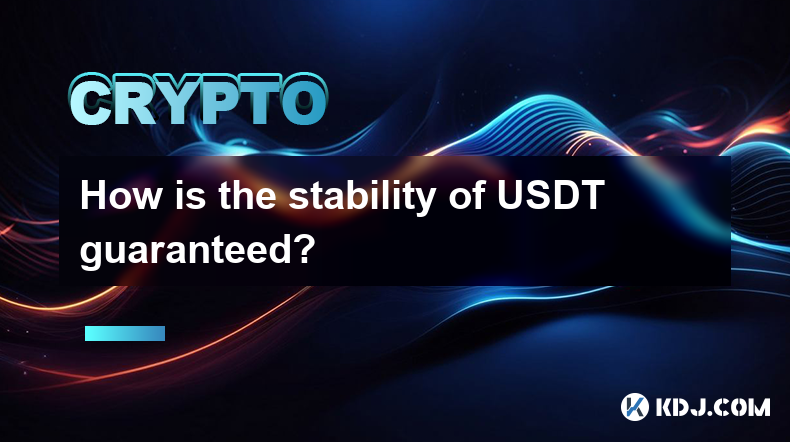
How is the stability of USDT guaranteed?
Apr 03,2025 at 06:00am
The stability of USDT, also known as Tether, is a critical aspect that underpins its role as a stablecoin in the cryptocurrency market. USDT is designed to maintain a 1:1 peg with the US dollar, which is achieved through a combination of mechanisms and practices. Understanding these elements is essential for anyone interested in the stability and reliab...
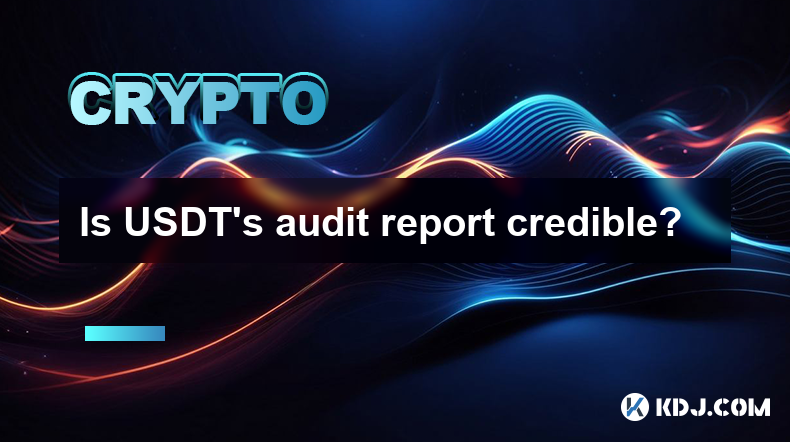
Is USDT's audit report credible?
Apr 02,2025 at 03:00pm
The credibility of USDT's audit report is a topic of significant interest and debate within the cryptocurrency community. USDT, or Tether, is a stablecoin that claims to be backed 1:1 by traditional fiat currencies, primarily the US dollar. The company behind USDT, Tether Limited, periodically releases audit reports to assure users of its solvency and t...
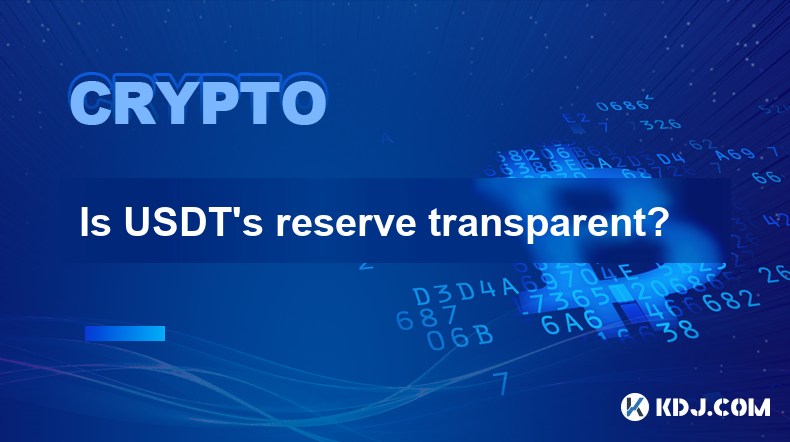
Is USDT's reserve transparent?
Apr 03,2025 at 01:50pm
USDT, also known as Tether, is a widely used stablecoin in the cryptocurrency market, designed to maintain a 1:1 peg with the US dollar. One of the most frequently asked questions about USDT is the transparency of its reserves. This article aims to delve into the details of USDT's reserve transparency, exploring the measures Tether Limited has taken to ...
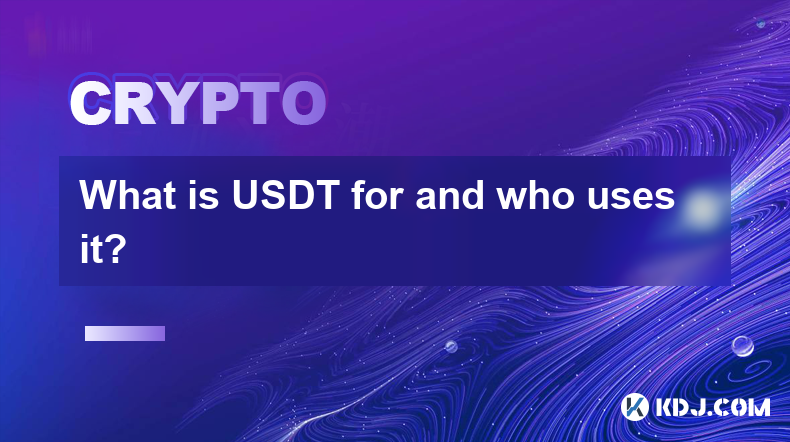
What is USDT for and who uses it?
Mar 31,2025 at 01:54pm
What does USDT do? Who can use it? USDT: The purpose of stablecoins and user groupsUSDT, full name Tether, is a stablecoin pegged to the US dollar. This means that 1 USDT should theoretically always be worth $1. Its main function is to provide a relatively stable store of value and trading medium in the cryptocurrency market, reducing the risks brought...
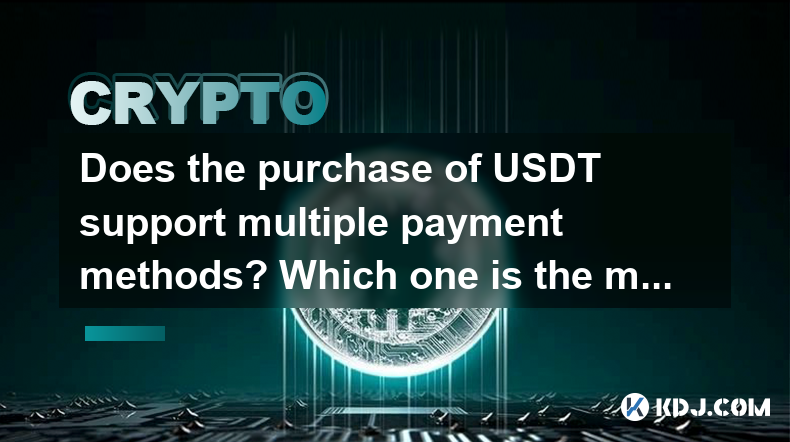
Does the purchase of USDT support multiple payment methods? Which one is the most cost-effective?
Mar 28,2025 at 04:56pm
Exploring USDT Purchase Options and CostsThe purchase of Tether (USDT), a popular stablecoin pegged to the US dollar, offers various payment methods, each with its own associated costs and benefits. The availability of specific methods depends heavily on the exchange or platform you choose. There's no single 'best' method, as cost-effectiveness is rela...
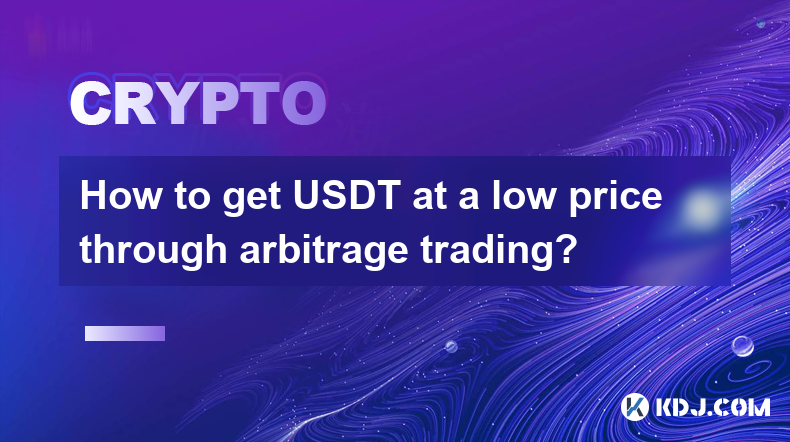
How to get USDT at a low price through arbitrage trading?
Mar 27,2025 at 08:14pm
Understanding Arbitrage Trading for USDTArbitrage trading exploits price discrepancies of the same asset across different exchanges. In the context of USDT (Tether), this means buying USDT on one exchange where it's cheaper and selling it on another where it's more expensive, profiting from the difference. This requires speed, efficiency, and access to...

How is the stability of USDT guaranteed?
Apr 03,2025 at 06:00am
The stability of USDT, also known as Tether, is a critical aspect that underpins its role as a stablecoin in the cryptocurrency market. USDT is designed to maintain a 1:1 peg with the US dollar, which is achieved through a combination of mechanisms and practices. Understanding these elements is essential for anyone interested in the stability and reliab...

Is USDT's audit report credible?
Apr 02,2025 at 03:00pm
The credibility of USDT's audit report is a topic of significant interest and debate within the cryptocurrency community. USDT, or Tether, is a stablecoin that claims to be backed 1:1 by traditional fiat currencies, primarily the US dollar. The company behind USDT, Tether Limited, periodically releases audit reports to assure users of its solvency and t...

Is USDT's reserve transparent?
Apr 03,2025 at 01:50pm
USDT, also known as Tether, is a widely used stablecoin in the cryptocurrency market, designed to maintain a 1:1 peg with the US dollar. One of the most frequently asked questions about USDT is the transparency of its reserves. This article aims to delve into the details of USDT's reserve transparency, exploring the measures Tether Limited has taken to ...

What is USDT for and who uses it?
Mar 31,2025 at 01:54pm
What does USDT do? Who can use it? USDT: The purpose of stablecoins and user groupsUSDT, full name Tether, is a stablecoin pegged to the US dollar. This means that 1 USDT should theoretically always be worth $1. Its main function is to provide a relatively stable store of value and trading medium in the cryptocurrency market, reducing the risks brought...

Does the purchase of USDT support multiple payment methods? Which one is the most cost-effective?
Mar 28,2025 at 04:56pm
Exploring USDT Purchase Options and CostsThe purchase of Tether (USDT), a popular stablecoin pegged to the US dollar, offers various payment methods, each with its own associated costs and benefits. The availability of specific methods depends heavily on the exchange or platform you choose. There's no single 'best' method, as cost-effectiveness is rela...

How to get USDT at a low price through arbitrage trading?
Mar 27,2025 at 08:14pm
Understanding Arbitrage Trading for USDTArbitrage trading exploits price discrepancies of the same asset across different exchanges. In the context of USDT (Tether), this means buying USDT on one exchange where it's cheaper and selling it on another where it's more expensive, profiting from the difference. This requires speed, efficiency, and access to...
See all articles






















































































